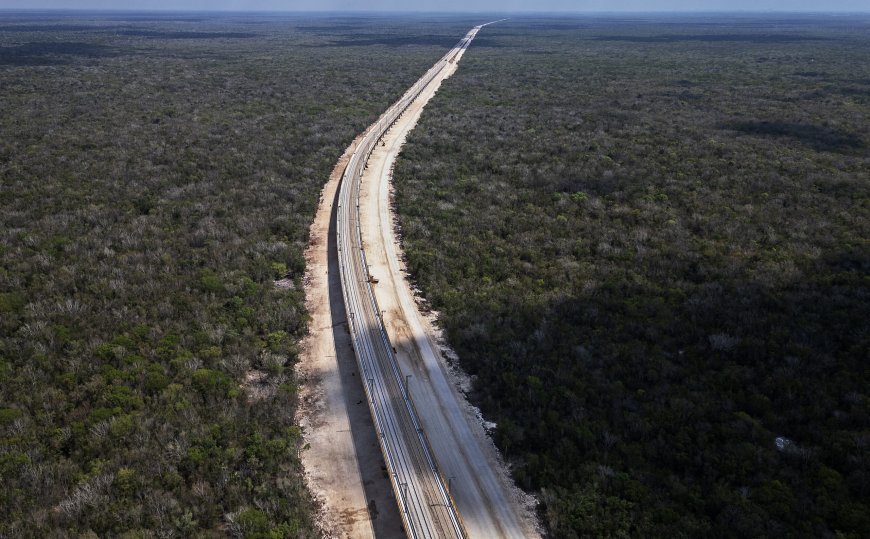Environmental Activists Call The Mexico Tourist Train A "Nightmare"

Deforestation, Habitat Destruction, and Water Contamination
One of the most pressing concerns is the deforestation caused by the railway’s construction. Satellite images show that thousands of hectares of jungle have been cleared, threatening endangered species like jaguars, tapirs, and howler monkeys.
Environmental groups argue that the railway cuts through protected areas and biosphere reserves, disrupting migration patterns and fragmenting critical habitats.
“The Maya Train is a disaster for biodiversity,” said Alejandro Olivera, a senior scientist at the Center for Biological Diversity. “It is destroying one of the most important rainforests in Latin America and pushing several species closer to extinction.”
Activists have also raised alarms over the project’s impact on the region’s underground rivers and cenotes, which supply drinking water to millions of people. Construction activities, including drilling and heavy machinery use, risk contaminating these fragile water sources with pollutants.
Cultural and Indigenous Rights Violations
Beyond environmental concerns, the Maya Train has also been criticized for violating indigenous rights. Several Maya communities have accused the government of failing to consult them properly before moving forward with construction.
“The train is being built on our ancestral lands without our consent,” said María Tec, an indigenous activist from Yucatán. “This is not development; it is destruction.”
Many indigenous groups fear that the train will lead to mass tourism that erases local traditions, displacing communities and replacing their way of life with commercial developments.
Government’s Justification and Defense
The Mexican government, led by President Andrés Manuel López Obrador (AMLO), insists that the Maya Train will spur economic development, create jobs, and bring tourists to less-visited areas. Officials claim the project is being carried out with sustainability measures, including wildlife crossings, tree replanting, and new conservation programs.
“This project will bring prosperity to the Yucatán Peninsula,” said AMLO in a recent speech. “We are investing in the future of Mexico, ensuring that tourism benefits all, not just a few.”
However, scientists, activists, and local residents argue that these measures do not compensate for the long-term damage the project will cause.
Legal Battles and Protests
The Maya Train has faced multiple legal challenges, with courts temporarily suspending parts of the construction due to environmental violations. However, many of these injunctions have been overturned, allowing work to continue.
Protests against the project have been ongoing, with environmentalists chaining themselves to trees, blocking construction sites, and filing lawsuits.
Despite the backlash, the Mexican government is pushing ahead, with the train’s full operation expected to begin in 2025.
Future Outlook
As the Maya Train nears completion, the controversy surrounding it shows no signs of fading. While some hail it as a modern infrastructure project that will boost tourism and the economy, others see it as a threat to Mexico’s environment, indigenous communities, and cultural heritage.
With continued protests and legal battles, the future of the Maya Train remains uncertain, but its impact—whether positive or negative—will be felt for decades to come.
What's Your Reaction?












/https://tf-cmsv2-smithsonianmag-media.s3.amazonaws.com/filer_public/54/66/546650fa-26a4-40fd-8d6d-5a7a04540f81/rosetta2.png)
:max_bytes(150000):strip_icc():focal(999x0:1001x2)/robert-prevost-050825-1-39395418ab494da5a3a700c9478e66c8.jpg)















































format(webp))
format(webp))
























